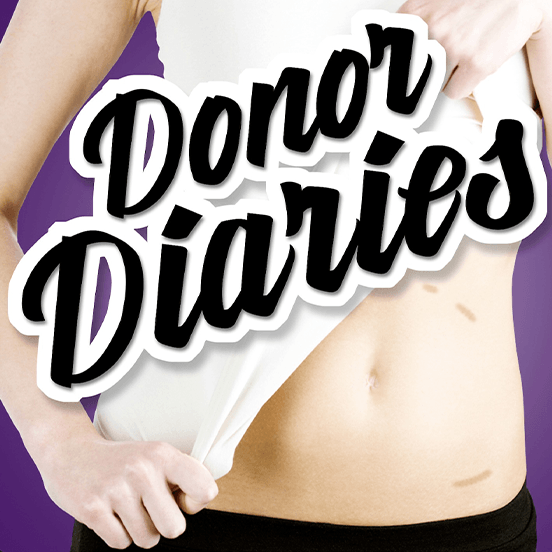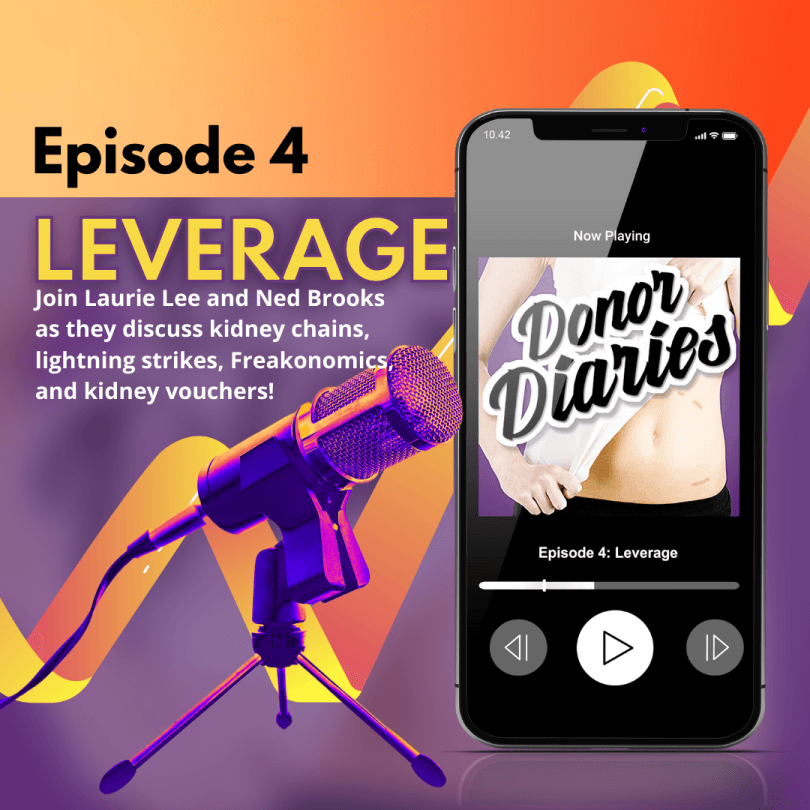Kidney Donor Information
Things to consider when Donating your Kidney
Benefit 1
YOU DON'T HAVE TO BE A MATCH TO BE DON'S DONOR!

The recipient doesn't need to have the same blood type or be a perfect match anymore. There are wonderful programs that help even the hardest to match kidney, with your help!
Read about these programs >
This program allows a living kidney donor to choose the most convenient time frame for their kidney donation surgery and provide one or more vouchers to people who can then be prioritized to receive a living donor kidney through the NKR if/when they need a transplant. Voucher donation, which has been referred to in the medical literature as a paired exchange separated in time, allows donors to overcome chronological incompatibility.
The standard voucher is utilized when a family member or friend is in imminent need of a kidney transplant (within a year) and the donor would like to donate sooner rather than later. The person in imminent need will receive a voucher for a living donor kidney, which can be activated at any time. In addition to the voucher holder in imminent need, the donor can also name five family members as back-up voucher holders should the voucher holder in imminent need receive a deceased donor transplant.
The family voucher is utilized when a donor does not know someone in immediate need of a kidney transplant and wants to help others in need by starting a chain and donating their kidney to a stranger. The Family Voucher Program allows for up to five family members of the donor to receive vouchers that can be activated if one of the family members ever needs a kidney transplant. Once the first voucher is redeemed, all other vouchers related to that donor become void and cannot be redeemed.
Benefit 2
You don't have to pay for it!
The recipient’s insurance pays for the donor’s testing, evaluation, and surgery, even in the case of a donor doing a non-directed direction.
Benefit 3
The Hospital stay isn't usually longer than 3 nights!
In general, donors stay 1 - 3 nights in the hospital. The surgeon and healthcare team ultimately decides when the donor can be discharged, and most only need occasional Tylenol once home. Donors are advised to adhere to lifting restrictions and instructions from the healthcare provider.
When you’re ready to get started with the screening process, click the button below.
Hear real stories from other living kidney donors, host Laurie Lee & Donor Diaries
Donor Diaries is a podcast about the beauty and messiness of living organ donation. Get ready for some amazing stories about what happens when people decide to share their organs with other people,
when people chose to share life.
Listen on Donor Diaries or Download Audio
People who have donated say...
Living Kidney Donor Candidate
Frequently Asked Questions
- Emily Cohen
I met Don in a widow/widowers group that Don started, it was really a lifesaver. I can't explain the incredible impact that this group and Don has made in my life. He just has to continue doing this.
If you donate, you also get...
Kidney Bragging Rights!
If you donate one of your kidneys, you have life-long bragging rights that you saved someone's life! You don't have to brag if you don't want to, but it would be great if you told other people and encouraged them to donate too!
In 2021, more than 18,300 donors brought
new life to recipients and their families.
18,300
Please consider becoming a living kidney donor for me.
my time is running out.
















